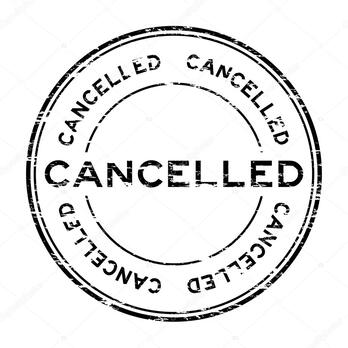|
I just turned 26, which means two things: I’m entering the last year of my “mid-20s” and more importantly, I got 30 days to get health insurance since my parental coverage is coming to an end. Naturally, I went straight into adulting mode and got all my check-ups in one day before transferring to another healthcare provider. What I got after those two back-to-back appointments was a somber reminder of what my identity and voice is worth in a typical white doctor’s office. In addition, I got to see what it feels like to be truly heard by a doctor who was a woman of color. I started my first appointment at 8am. OBGYN. I thank my mothers for teaching me early to write down my questions before my appointment, as well as document any pain and its location for reference. It was a revolutionary act to teach me that advocacy. Upon walking into my appointment, I was disappointed to learn that my previous doctor, a woman of color, had left the office but I was already here so I figured might as well get this check-up over with. After my exam, I asked a question regarding something I’ve been meaning to ask since my last appointment. White Doctor: Oh? Okay I repeated my question just in case she didn’t hear what I just said was actually a question. She had the same answer and concluded my appointment and I walked out. At that moment I considered that a normal appointment. She said everything was fine. Out of sight out of mind. If it wasn’t for my next appointment in the afternoon, I wouldn’t have noticed how silent my first appointment was. Around 2pm I went to my next appointment for my general check-up. When coming in she asked how I was doing in life and how my boyfriend was then prepared to take my blood for testing. I asked my primary doctor the same question I asked the other doctor this morning. WOC Doctor: Oh? Let’s look at your imaging… I’m going to ask them to look at this again just to make sure everything is normal. They might’ve missed something. Oh! I looked at your zip code. It might be good to double check your immunity to measles. You know about the outbreak right? I just want to make sure. She asked me questions to gain more information and then asked more questions based on my experience. We worked together. We laughed. We chatted. I left. The stark contrast between the two appointments almost brought me to tears. I started to question why I didn’t push the doctor this morning to actually address my concerns. Then I remembered how easy it is to walk out of most doctor’s offices with less answers and more “facts” that need to be accepted. I couldn’t get certain test done just because it’s not usually done at this time of my life. I’m too young. I was being prescribed medicine because it would “stop the damage.” What about the damage already done? Not addressed. Not important.
Apparently, I am used to not being heard and after finally being listened to, I cannot go back to being satisfied with silence. Pregnant Black women are 3 times more likely to die from complications than white women. An alarming statistic but the antidotes and funerals hit different. I’ve heard too many stories (one from an ICU hospital bed) from women of color whose experiences were invalidated in the name of protocol or completely ignored. It becomes a fight every appointment and sometimes we’re just tired of fighting. I encourage women of color to not accept silence as medical care. I encourage you to find a doctor/healer who sees your humanity completely and responds to your demand for quality care. Our livelihood depends on it.
0 Comments
THE QUESTION OF #CANCELCULTURE: SEeking sustainability and productivity in a reactionary era5/21/2019 Cancel culture, or the practice of utilizing public pressure to seek accountability or repercussion for a harmful act, lives on a spectrum of productivity.It is hard for me to engage in the outrage every time someone is “cancelled.” Sometimes the outrage leads to an outcome that further represents the world most of us want to live in: Safe and just. I’m then inspired to use my talents and strengths to support the effort/cause. I’m reminded of R. Kelly’s most recent cancellation that went from a trending hashtag to protests to a documentary to court dates. Albeit, it took many many years, but it seems that his music is cancelled, his management team cancelled him, and he was forced to be held accountable in court. Then there was Nate Parker’s rape allegation scandal from 1999 that imploded on the cusp of the release of Birth of a Nation. Unlike previous moments of public outrage, this time did not feel as righteous. The hashtags and on-brand opinion pieces saturated my timeline, as a shadow loomed over survivors still living in secret or silence. What was Nate Parker’s public shaming doing for them? It seemed like everyone was yelling into the void without real focus or intention. Each new bout of public cancellation makes me question how much I can participate in the act of cancelling someone and how much it aligns with the way I want to implement change in this world. At some point I had to ask myself what do I hope to accomplish with someone being cancelled? Healing and education are a part of my mission. Where is that seen in cancel culture? Do I want them to go to jail? Do I want an apology? Do I want someone to feel shame or be shamed? Do I want justice or healing for the harmed party? What does that look like? And if I got all of these things, who would it help? How productive is my public display of outrage? Is it sustainable or necessary for me to be outraged every time someone is cancelled?I have yet to see someone get cancelled gracefully and the person who got cancelled respond in a way that pleases the general public. I have yet to see the general public "un-cancel" someone. Jussie Smollett was an interesting case in that he was cancelled by some and supported by others. The justice system investigated and seemed to make things worse and more complicated. The general public, who did the cancelling, seemed to be misinformed and exploited the issue. Did you know there are Jussie Smollett shirts for sale? With that said, cancel culture has put a spotlight on how powerful the people can be when they’ve had enough, which is a practice I can stand behind sustainably with intention. There seems to be a heightened awareness of the power of our dollar and our time. When the numbers decline, they have to reply. That’s why Georgia is scrambling right now to keep the production companies in their state after signing the “heartbeat bill”.
The number of things to cancel and be held accountable for keep rising, which is not a surprise considering the era we are living in and the physical, psychological, and political violence that we are experiencing every day. The message is clear: We need to ACT NOW and time is running out. But how I react needs to align with my mission or I am moving without purpose or focus. Hence, how WE act and mobilize sustainably is an important question worth holding space for. |
AuthorTayllor Johnson currently resides in New York City where she has begun her journey into Poet. Passion. Period. In between those learning moments, she sometimes has just enough time to jot a few lines... Archives
March 2021
Categories
All
|

